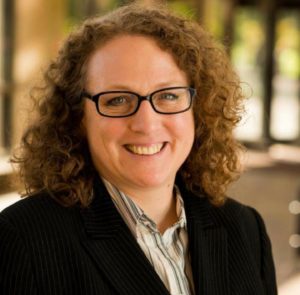By Harold C. Ford
The Flint Community Schools (FCS) Board of Education will have a new look in 2021. Joyce Ellis-McNeal, (9.13 percent/9,409 votes), Anita M. Moore (8.78 percent/9,053 votes), and Laura Gillespie MacIntyre (6.09 percent/6,277 votes) were elected to six-year terms that begin Jan.1, 2021 and end in 2026.
(Note: Percentages and votes are from the “Unofficial Results” posted at the website of the Genesee County Clerk’s Office on Nov. 4, 2020 at 6:57 p.m.)
The remainder of the crowded field of a dozen candidates included: Ariana Hawk (5.45 percent/5,618 votes); Timothy Abdul-Matin (4.9 percent of the vote/5,052 votes); Mario DeSean Booker (4.8 percent/4,942 votes); Billie D. Mitchell (4.75 percent/4,894 votes); Michael D. Doan (3.9 percent/4,024 votes); Antonio V. Forte II (2.96 percent/3,055 votes); Leondrew Wesley (2.87 percent/2,961votes); Jaron Houston (2.83 percent/2,918 votes); and Roemon M. Murphy (2.63 percent/2,711votes).
Ellis-McNeal, Moore and Gillespie MacIntyre will replace three incumbent board members who opted not to run for the seats they currently hold. Casey Lester, board president (with nearly two years on the board); Betty Ramsdell, secretary (11 years); and Blake Strozier, trustee (10 years); take more than two decades of Flint board experience with them as they step down at the end of December.
The three newly-elected board members will join four others on the seven-person board: Diana Wright, vice president; Danielle Green, treasurer; and trustees Carol McIntosh and Vera Perry. Flint’s school board will be an all-female panel, perhaps for the first time in the district’s history. The board will hold its annual organizational meeting on Jan. 13, 2021 to elect new officers.
EVM Special Edition
All three winning candidates submitted responses for East Village Magazine’s (EVM) Special Edition on the FCS board election. Candidates were asked for a short biography and responses to three questions. Full responses to EVM’s queries can be found at the EVM website. Their responses were printed exactly as the candidates submitted them, including in the excerpts below.

Flint Community School Administration Building at Crapo and Kearsley Streets in the Cultural Center neighborhood. (Photo by Ed Custer)
Candidates were asked by EVM: 1) how to stem the erosion of students from Flint schools; 2) to comment on the three-year improvement plan with the state of Michigan to increase student attendance, improve standardized test scores, and reduce student suspensions; 3) to comment on the state of financial affairs in the school district.
Joyce Ellis-McNeal
Ellis-McNeal’s Facebook page indicates she is self-employed with Round 2 Education & Research Center, Inc. Education achievements, according to the website, include a Master of Public Administration degree from Central Michigan University.

Newly elected Flint Community School Board member Joyce Ellis-McNeal. (Photo provided by Elis-McNeal.)
Ellis-McNeal’s response to EVM indicated she has been an FCS learning support specialist, guest teacher, and literacy specialist.
In her written responses to EVM, Ellis-McNeal said, in part, that “stabilizing student population cannot be done with out first determine how much money will FCS need to maintain stability in staffing and services.”
She said that “improving test scores and reduce suspension are attainable goals, which I have worked in schools and see that this can be done…we must remodel our school infrastructures and create a new way of teaching our children to be self-sufficient.”
About FCS finances, Ellis-McNeal wrote: “I would like to look more into expenditures and once again, due to Pandemic and Flint Water Crisis more federal assistant is needed, as well as the recent past Mileage.”
Anita Moore
In her response to EVM’s request for a short bio, Moore wrote, in part, that she was “born and raised in North Carolina found her education foundation early. It was always a natural niche for her. Got to babysitter and friendly neighbor in the hood, followed her calling as a fresh high-school graduate making magic in Michigan pursuing her undergrad in Early Childhood Education with studied interest in fine arts and Spanish.”

Newly elected Flint Community School Board member, Anita Moore. (Photo provided by Moore.)
Moore also cites “self-study in metaphysics, yoga and alternative natural living formed a way to merge education with the essence of existing.”
About stabilizing the FCS student population, Moore wrote: “An increase in the student body would be a direct display of needs being met by the school’s services, overall. Seeking stability and strength within Home-school partnerships.”
Moore wrote, in part, that meeting state partnership goals would include: “restructuring the system…consideration of how students learn; minimizing time, maximizing efforts; taking into account the physical foundations/buildings and environment that learning takes place; adapt(ing) new approaches that reflect real life experience; mak(ing) students want to show up ready and willing; stabilizing assistance for the home lives of the attendees…revolutionizing outdated systems; continued education/updating for educators.”
About school finances, she wrote “I’m definitely interested in more insight on this subject. Overall, society’s shift is toward sustainable solutions.”
Laura Gillespie MacIntyre
In her written response to EVM, Gillespie MacIntyre wrote, in part, that she “is an educator…public sociologist…Flint native who attended Flint public schools…was raised by 2 Flint public school teachers…has over 30 years of experience in education and is a proud member of the American Federation of Teachers.”

Newly elected Flint Community School Board member, Laura Gillespie-MacIntyre. (Photo provided by Gillispie-MacIntyre.)
She wrote, in part, that stabilizing student population would include a “plan to ensure that all households have safe, clean and AFFORDABLE WATER…encourag(ing) home ownership as opposed to predatory home rentals and leasing…and work(ing) to ensure that school districts remain public and local and change the ways that charter schools are able to unfairly compete with public education.”
Gillespie MacIntyre wrote, in part, that the three-year improvement plan “is disingenuous and designed to create failure for the public school system in Flint…Increased attendance can only be accomplished with wider systemic changes…Improved test scores are a red herring. We need to demand that standardized testing is eliminated…reducing suspensions is simple: Stop suspending students! Eliminate all forms of the School-To-Prison-Pipeline and institute a comprehensive Restorative Justice Program in the schools.”
About school finances, Gillespie MacIntyre wrote, in part, that “The revenue sharing for cities and the ways in which the public schools are funded in the state of Michigan is criminal and needs to be recalculated.” She wrote “there is little hope for public schools to meet the artificially constructed measures of ‘financial success’…that “financial emergency manager laws in the state of Michigan…(are) a clear violation of our democratic process.”
Challenges
The FCS board will continue to face significant challenges in 2021. First and foremost is safely navigating a surging pandemic that will likely keep students from face-to-face/brick and mortar instruction for the remainder of calendar year 2020 and into 2021.
Emerging data confirm that, for most students, virtual/online instruction is generally far less effective than face-to-face instruction in the classroom.
A McKinsey and Company report titled COVID-19 and Student Learning in the United States: The Hurt Could Last a Lifetime, learning loss from last school year will worsen for most students, but especially for racial minority children.
And, as reported by East Village Magazine in Sept. 2019, “Test scores for students in Flint Community Schools…lagged significantly behind ‘similar students’ and state averages…”
“We’re already at a disadvantage because we’re not in face-to-face instruction which is the best form of instruction,” said FCS Superintendent Anita Steward at a meeting of the Flint board on Oct. 21.

FCS Superintendent Anita Steward. (Photo from FCS website)
Another major challenge will be the continuing loss of student population—now reported at just more than 3,000, possibly making Flint the 8th largest school system in Genesee County—and resultant loss of state aid.
Additional challenges include:
- Meeting the requirements of a three-year (2018-19 to 2020-21) partnership plan imposed by the State of Michigan to improve test scores by 10 percent, reduce suspensions by 10 percent, and increase student attendance to 90 percent;
- The erosion of staff — 78 educators in 2019 taking with them 1,014 years of experience in the Flint schools –and subsequent staffing of classrooms with paraprofessionals and guest teachers still seeking certification;
- Adopting a strategy to rid the district of at least 22 buildings already closed and 16 vacant properties—including a final decision on the status of the Northwestern campus that still houses the central kitchen.
- Improvement of infrastructure at the dozen buildings that remain open to students—especially heating, ventilation, and air conditioning systems to meet the needs of a pandemic era and a balanced calendar school year.
EVM Education Beat reporter Harold C. Ford can be reached at hcford@gmail.com.



You must be logged in to post a comment.